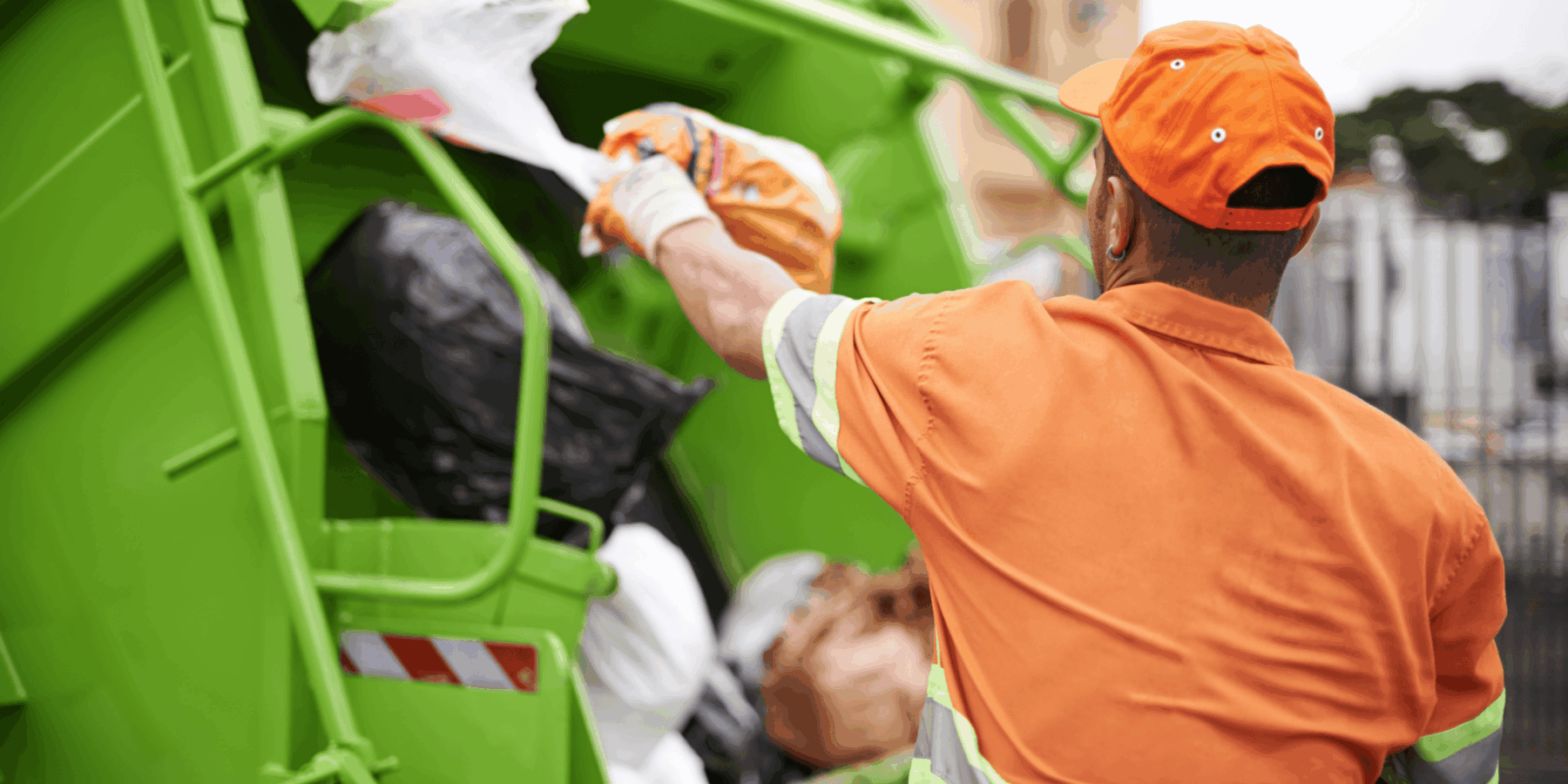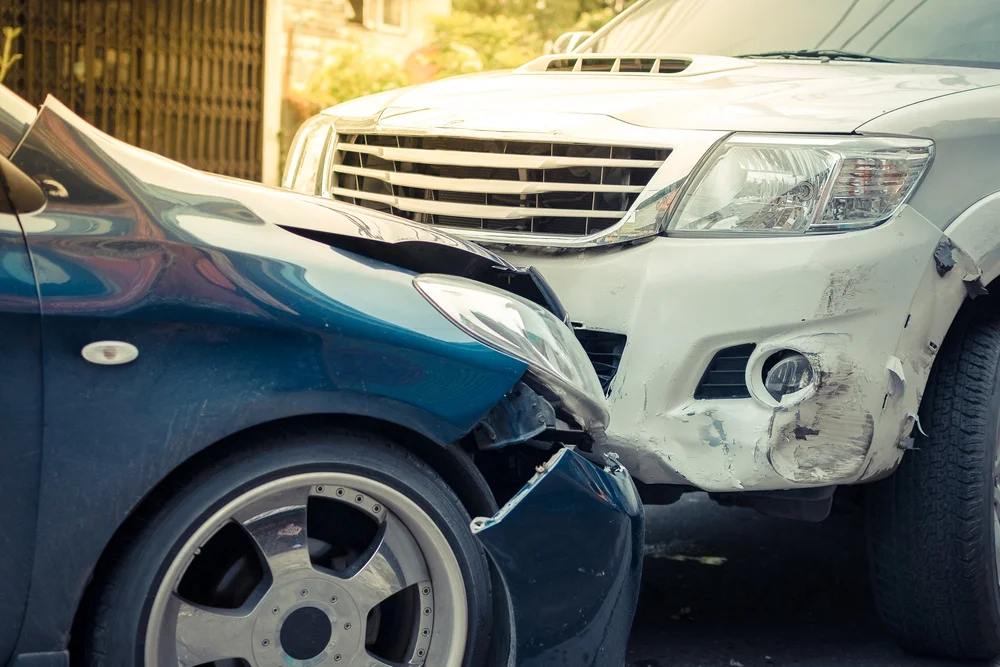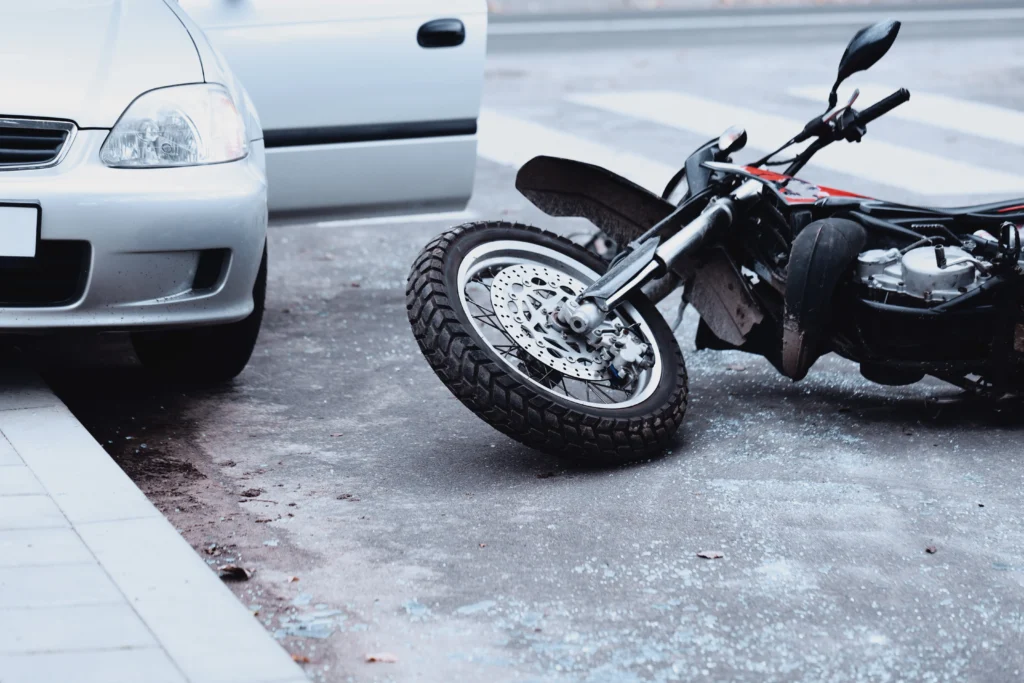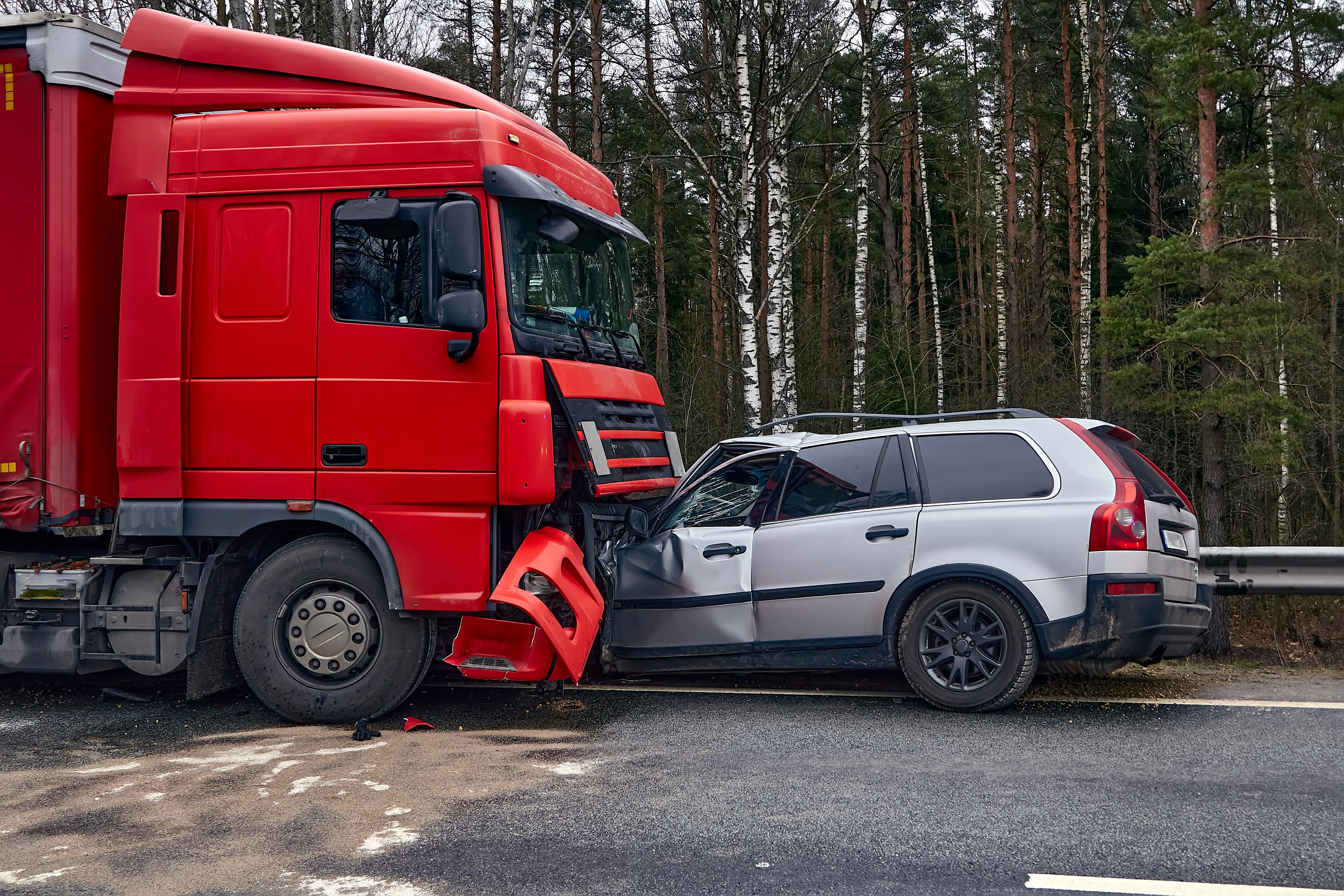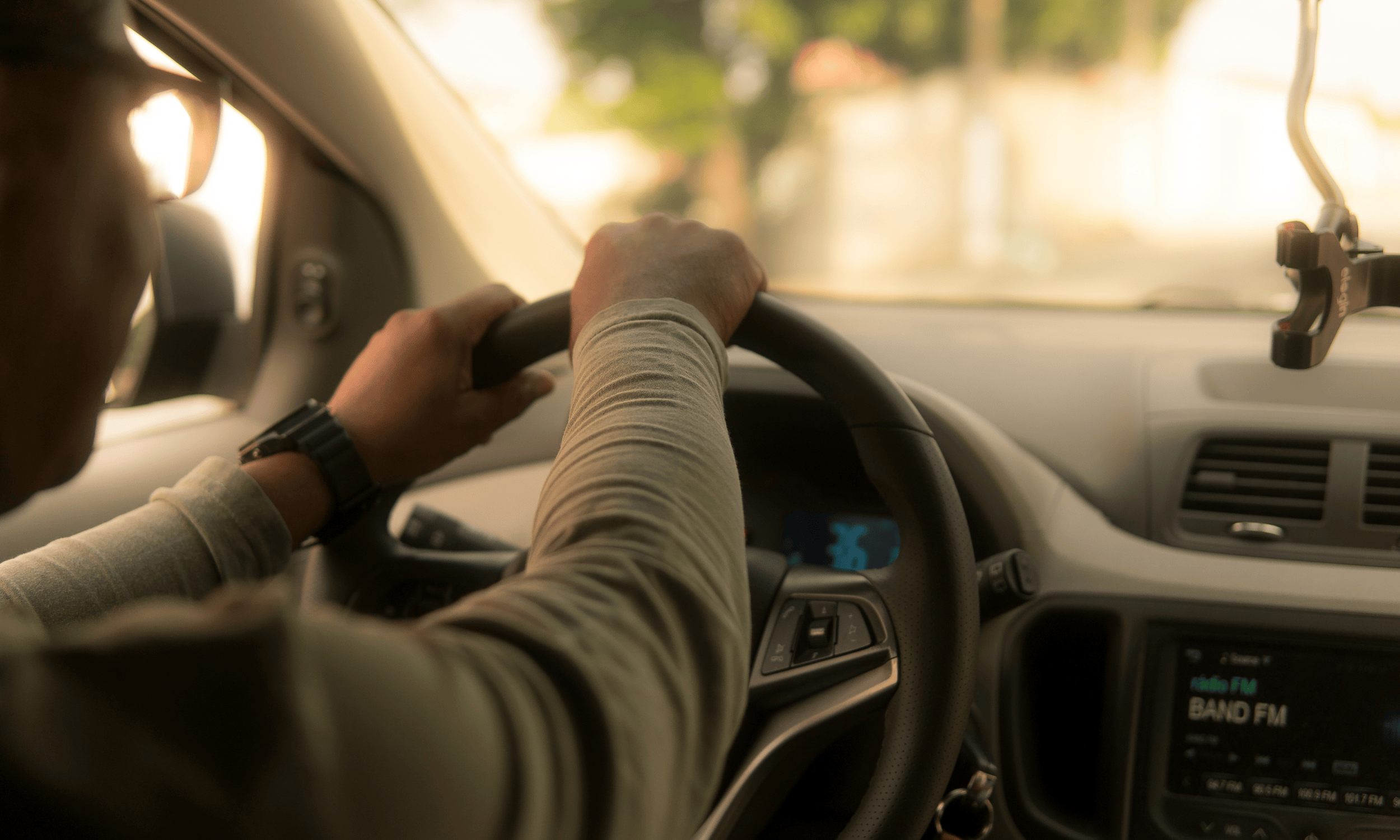Trash Truck Accident Attorneys Representing Southern California Victims
Every year, garbage trucks cause disastrous injuries on the streets of nearby neighborhoods around the Inland Empire, Apple Valley, and Santa Clarita Valley. A trash truck collision in California can leave victims with crippling trauma, especially when big garbage trucks collide with small cars or innocent pedestrians. These collisions are often common on narrow neighborhood streets where visibility is low and driver training inadequate.
Our lawyers at The Law Offices of Larry H. Parker are here to help you. We’ve recovered over $2 billion in verdicts and settlements, including truck accident verdicts all over Southern California.
Large truck accidents were reported by the National Highway Traffic Safety Administration as resulting in over 5,000 fatalities nationwide for a single year and including numerous refuse and collection vehicles. When they collide, the effect is normally devastating.
No matter where your accident took place along Apple Valley Road, Soledad Canyon in Santa Clarita, or among San Bernardino County’s densely populated neighborhoods, we are familiar with the local terrain, legal process, and municipal defense tactics that stand in your way. Leave it to us to fight on your behalf against negligent motorists, contractors, or government agencies.
Call now to begin your recovery process after a garbage truck accident in California.
Understanding the Unique Dangers of Trash Truck Collisions in Inland Empire and Santa Clarita Neighborhoods
Refuse trucks play a critical role in keeping our communities clean, but they also present serious safety hazards when drivers or operators act carelessly. These vehicles operate within inches of parked cars, pedestrians, and cyclists, particularly in residential areas of the Inland Empire, Santa Clarita, and Apple Valley. The unique design and function of trash trucks create dangers not commonly seen in other types of commercial vehicle crashes.
Unlike long-haul trucks, garbage haulers perform frequent stop-and-go maneuvers and travel on local roads not built for oversized vehicles. According to the National Institute for Occupational Safety and Health, sanitation work ranks among the most hazardous jobs due to the vehicles’ large blind spots and repetitive motion hazards. For other road users, these dangers are even more severe when trash trucks operate without proper precautions.
Tight Residential Streets in Fontana and Victorville Create Collision Hotspots
High-density housing developments in cities like Fontana and Victorville force trash trucks to operate in environments where space is extremely limited. Driveways, narrow lanes, and congested intersections leave very little room for error.
Most trash trucks are not equipped with the same turning radius as passenger cars. As a result, when drivers navigate tight corners or back up without warning, they may strike vehicles, fences, utility poles, or pedestrians. In many cases, there is no room for nearby drivers or residents to safely react or avoid the vehicle’s path.
Lack of Rear Visibility Contributes to Serious Reverse Accidents
Trash trucks often reverse to exit cul-de-sacs or alleyways without a designated spotter on site. These maneuvers are especially hazardous in San Bernardino County neighborhoods where children play on sidewalks and driveways are hidden by parked cars.
The National Safety Council reports that backover accidents cause hundreds of serious injuries and deaths each year. When these trucks operate without backup cameras or adequate safety protocols, lives are placed at risk.
Improperly Parked Trucks Block Driver Sightlines
In areas like Northgate Village or Heritage in Fontana, garbage trucks often block intersections or sit idle on curved roads. This creates visibility hazards for cross traffic and forces oncoming drivers to veer unexpectedly.
When sightlines are blocked by an idling refuse truck, the risk of a collision increases significantly. Drivers may not see pedestrians crossing or approaching vehicles until it is too late. In cases involving parked trash trucks obstructing traffic, liability can extend to the waste company or municipality responsible for route planning.
School Zones and Shopping Districts in Apple Valley Add Daily Risk
Trash pickup often occurs near schools and commercial centers during morning hours when traffic is most active. Routes near Yucca Loma Elementary or Jess Ranch Marketplace are frequent locations for near-misses and side-impact collisions.
Children walking or biking to school, along with distracted drivers navigating morning congestion, are highly vulnerable when large trash trucks stop unexpectedly or pull into traffic without signaling. These areas demand heightened awareness and precise operation by all commercial drivers.
Pedestrian Injuries in Apple Valley School Zones Are Often Severe
The most tragic incidents happen when a pedestrian is struck while crossing the street or walking on a sidewalk. Garbage trucks are tall and wide, making it difficult for drivers to see directly in front or to the side of the vehicle.
According to the U.S. Department of Transportation, children under 14 are at the highest risk of being injured or killed in pedestrian crashes involving large vehicles. School zones require slow speeds and constant scanning, yet trash truck operators may be rushed or inattentive.
Rear-End Crashes Are Common in Busy Apple Valley Shopping Centers
Garbage trucks stopping in high-traffic areas such as Bear Valley Road or Happy Trails Highway often create abrupt traffic disruptions. Nearby drivers may not anticipate sudden stops, leading to rear-end collisions.
Because trash trucks are significantly taller and heavier than passenger vehicles, even low-speed impacts can result in crushed engine compartments, airbag deployment, or neck and back injuries. These crashes frequently involve multiple vehicles, especially during lunch hour or weekend shopping peaks.
Steep Hills and Curves in Santa Clarita Demand Safer Operations
Santa Clarita Valley includes a mix of rural hillside roads and dense suburban streets, particularly in neighborhoods like Plum Canyon, Sand Canyon, and Newhall. Trash trucks navigating these routes must handle steep inclines and sharp turns with extreme caution.
Improper handling can cause trucks to roll backwards or lose traction on wet or uneven pavement. Rollovers, tip-overs, and runaway vehicles are all documented risks for large trash trucks operating in areas with poor grading or complex intersections.
Mechanical Failure Can Lead to Runaway Trucks in Hilly Areas
When a garbage truck’s braking system fails while descending a hill, the outcome is often catastrophic. Emergency braking systems are supposed to prevent runaway scenarios, but improper maintenance or overloading can cause total failure.
The National Transportation Safety Board has investigated numerous commercial vehicle crashes tied to mechanical failure. Our legal team uses similar data and incident analysis techniques to hold responsible parties accountable when a crash occurs due to failed equipment on grades in Santa Clarita neighborhoods.
Limited Escape Routes Magnify Injury Risk on Canyon Roads
Many winding roads in Canyon Country and Bouquet Canyon have no shoulders, sidewalks, or safe zones. When a trash truck veers off course, nearby drivers and pedestrians have no space to evade danger.
These roads also lack guardrails in many locations, turning a minor steering error into a major off-road accident. Combined with early morning fog or sun glare, this increases the risk of fatal head-on collisions and side impacts.
Common Causes of California Trash Truck Collisions in Santa Clarita and Surrounding Areas
Accidents involving trash trucks in Santa Clarita Valley, Apple Valley, and the Inland Empire are rarely caused by a single mistake. Instead, these crashes often result from a combination of driver error, mechanical failure, and systemic safety violations. Given the massive size and frequent stops these vehicles make, even a minor oversight can lead to catastrophic injuries or death.
According to the National Institute for Transportation and Communities, improper waste collection vehicle operation places both drivers and pedestrians at greater risk in suburban environments. Understanding the root causes of trash truck crashes helps build stronger legal claims and prevents similar tragedies from repeating.
Inadequate Driver Training and Route Familiarity in Santa Clarita Neighborhoods
Many waste collection companies rely on short-term or seasonal drivers with minimal training. These drivers may not be familiar with the complex road patterns found in Valencia, Newhall, or Canyon Country.
Without adequate training, operators are more likely to misjudge turns, ignore blind spots, or violate basic safety procedures. Poorly trained drivers may also lack experience in navigating steep hills, pedestrian crossings, or school zones, all of which are common in the Santa Clarita area.
Missed Stop Protocols Create Dangerous Hazards for Other Drivers
Refuse drivers often operate under strict collection schedules. When they miss a pickup, they may reverse suddenly or stop illegally to make up lost time. These sudden movements often confuse surrounding traffic and increase the chance of collisions.
In neighborhoods like Placerita Canyon and Saugus, these abrupt reversals or mid-block stops have led to rear-end crashes and pedestrian injuries. Ignoring safe collection protocols puts everyone on the road in danger.
Mechanical Failures Due to Poor Maintenance in Inland Empire Fleets
Trash trucks must undergo frequent inspections due to the heavy loads they carry and the wear-and-tear they experience. However, many private contractors and municipal fleets fail to keep up with these requirements.
As documented by the Bureau of Transportation Statistics, inconsistent maintenance is one of the top causes of commercial vehicle failure. When brakes malfunction, steering systems wear out, or hydraulic arms fail, these massive vehicles become uncontrollable hazards on local streets.
Brake Failure Is a Leading Factor in Garbage Truck Injury Crashes
In cities like Colton, San Bernardino, and Rialto, we have seen numerous incidents involving runaway trash trucks caused by brake failure. These accidents often occur on hilly streets or at traffic signals where full stops are essential.
When a garbage truck cannot stop, the force of impact is extreme. Victims in smaller passenger vehicles often suffer spinal injuries, internal trauma, or permanent disability. If inspections reveal worn brakes or delayed servicing, the company responsible may be liable for negligence.
Tire Blowouts and Steering Loss on Steep Inland Slopes
Trash trucks are not immune to tire degradation or steering system fatigue. In areas with steep terrain such as Loma Linda or Beaumont, these failures become deadly. A blown tire at the wrong moment can cause a total loss of control.
Federal guidelines from the Commercial Vehicle Safety Alliance require thorough inspections of tires, axles, and steering columns. When waste companies neglect these checks, they put the public at serious risk.
Overloaded Trucks and Unsecured Waste Create Roadway Hazards
Garbage haulers have strict weight limits and loading regulations. When crews overload a vehicle or fail to secure bins properly, debris may fall into traffic or cause trucks to handle unpredictably.
Overloaded trucks are more likely to tip during turns or fail to brake properly. In heavily trafficked areas like Bear Valley Road in Apple Valley or Soledad Canyon Road in Santa Clarita, these unstable loads lead to multi-vehicle accidents.
Unsecured Bins Can Fall Into Traffic and Strike Vehicles
Trash and recycling bins not properly fastened to hydraulic lifts or rear lifts can detach and roll into lanes of travel. At high speeds or on curved roads, even small containers become deadly projectiles.
The Occupational Safety and Health Administration warns that unsecured loads during waste collection increase the risk of fatal incidents. Liability often falls on both the waste collection company and the individual crew member responsible for securing the load.
Driver Distraction and Fatigue During Early Morning Routes
Refuse truck routes often begin before sunrise, placing drivers on the road during dark and quiet hours. Many drivers work long shifts and operate while fatigued, increasing the likelihood of distraction or inattention.
Fatigue reduces reaction time and impairs judgment, especially during repetitive tasks like curbside collection. On roads like Bouquet Canyon Road or Palmdale Road, where visibility is limited in the early morning, fatigue can quickly lead to tragedy.
Cell Phone Use and GPS Distraction While Navigating Routes
Waste collection drivers frequently use tablets or phones to track routes and collection records. Unfortunately, this reliance on screens during movement increases the likelihood of distracted driving.
The National Conference of State Legislatures has identified mobile device usage as a growing cause of commercial vehicle collisions. If a trash truck driver causes a crash while looking at a device, they may be found negligent under California law.
Who May Be Liable in a Garbage Truck Accident in California?
Determining liability in a California trash truck accident is often more complex than in a typical car crash. These collisions may involve multiple layers of responsibility including city contractors, private waste management companies, maintenance providers, and even government agencies. In areas like the Inland Empire, Apple Valley, and Santa Clarita, where public and private entities both handle refuse collection, the question of who is at fault depends on a close investigation of contracts, safety records, and crash details.
Waste Collection Companies and Their Drivers Are Often First in Line
Most garbage truck accidents result from driver negligence. Whether caused by speeding, reversing without visibility, or distracted operation, the driver and their employer are typically the first parties investigated. In cities like Santa Clarita or Ontario, waste collection may be contracted to private companies or performed directly by municipal agencies.
When a company is responsible for hiring, training, and supervising its drivers, it can be held legally accountable under California negligence law. If the crash involved a commercial operator on duty, that company may bear full or shared liability for your injuries.
Failure to Train or Supervise Drivers Increases Corporate Responsibility
Trucking companies must comply with strict training and supervision standards. If a company hired a driver without proper licensing or failed to provide safety instruction, it may be liable for negligent hiring.
In cases where the driver had previous accidents or disciplinary issues, and the employer ignored those red flags, the case for corporate negligence becomes even stronger. The California Department of Industrial Relations outlines employer responsibilities for job-specific training across industries, including transportation.
Municipal Agencies May Be Liable for Public Trash Truck Accidents
Many cities in the Inland Empire and Apple Valley handle waste collection through public works departments. If a city-owned garbage truck causes a crash, the municipality may be liable under the California Tort Claims Act.
Claims against public entities follow strict deadlines and procedures. If a government agency failed to maintain the truck, hire a qualified driver, or enforce safe collection practices, you may have the right to compensation. However, you typically must file a notice of claim within six months of the accident.
Failure to Maintain Public Trucks Can Trigger Government Liability
City sanitation fleets must undergo regular maintenance. If a publicly operated trash truck suffered brake failure, steering problems, or mechanical defects due to poor upkeep, the agency that owns the vehicle can be held accountable.
A report from the National League of Cities highlights how deferred municipal maintenance increases liability risks. Legal action against a city or county may also uncover broader safety issues in its public services.
Third-Party Maintenance Contractors and Mechanics May Share Fault
Some waste collection companies outsource vehicle maintenance to independent service providers. When a garbage truck crash results from a mechanical failure and that failure can be traced to improper inspection or repair, the contractor that serviced the truck may be held liable.
These cases often involve expert review of repair logs, service contracts, and maintenance records. If the evidence shows a mechanic overlooked a known issue or failed to follow state safety guidelines, that party can be added to a civil lawsuit.
Poor Workmanship or Missed Inspections Create Dangerous Conditions
Garbage trucks operate under extreme mechanical stress. Missed oil changes, worn brakes, damaged suspension systems, and corroded hydraulic lines can all contribute to a crash.
As outlined by the American Public Works Association, service providers must follow maintenance schedules and report dangerous conditions to operators. A failure to do so creates liability for both the service company and possibly the vehicle owner.
Truck Manufacturers or Equipment Makers May Be Responsible for Defects
If the crash was caused by a defective part, the manufacturer of the garbage truck or its components may be responsible. Parts such as hydraulic lifts, braking systems, rear cameras, or steering columns may fail due to design flaws or faulty manufacturing.
Defective equipment cases often involve national or international companies. Legal claims against these entities fall under product liability laws. Victims must show that the product failed during normal use and that the defect directly caused injury.
Known Product Defects Can Lead to Manufacturer Accountability
If a trash truck component was recalled or flagged in safety investigations, the manufacturer may have failed to warn buyers or issue timely repairs. These claims can involve millions of dollars in damages when multiple people are injured.
The Consumer Product Safety Commission tracks safety issues and recall notices that help build product liability claims. If your crash involved a known defect, your case could extend beyond the local operator to the company that built the truck.
Construction Contractors and Site Managers May Also Be Liable
Sometimes, garbage truck accidents happen near active construction or demolition sites. If a site contractor directed the truck to operate in a dangerous manner, or failed to control traffic and pedestrian access, they may be partially at fault.
This is common in areas like Canyon Country or South Apple Valley, where construction vehicles and trash haulers share limited space with the public.
Unsafe Routing and Lack of Traffic Control Create Legal Exposure
Contractors are required to secure job sites and protect the public. When trash trucks are routed through unsafe paths or operate without spotters, fencing, or signage, the general contractor may be liable under California premises liability standards.
The Occupational Safety and Health Review Commission enforces federal worksite safety rules, which can support claims involving jobsite negligence.
Speak With a California Trash Truck Accident Lawyer Serving Inland Empire and Santa Clarita
If you or a loved one has been hurt in a California trash truck accident, you deserve immediate legal support. Injuries caused by garbage truck collisions are often life-altering. Victims may face hospital stays, permanent disability, and loss of income. In communities like Apple Valley, Santa Clarita Valley, and the Inland Empire, these crashes often involve public agencies or private contractors who act quickly to minimize liability.
Do not face this legal fight alone. At The Law Offices of Larry H. Parker, we have recovered more than $2 billion for over 100,000 clients across California. Our team investigates early, preserves evidence, and fights for the maximum compensation available under California law. We know how to hold large waste contractors and public agencies accountable.
We offer free consultations and never charge a fee unless we win your case. Call us today or submit your case online to begin your path to justice after a serious garbage truck crash.
Practice Areas
Trust UsWith Your Personal Injury Claim
If you or a loved one have been injured, the Law Offices of Larry H. Parker will fight for you every step of the way. We will give our all to secure the compensation you rightfully deserve.
Contact usfor a free consultation.
Phone: (310) 736-6869
